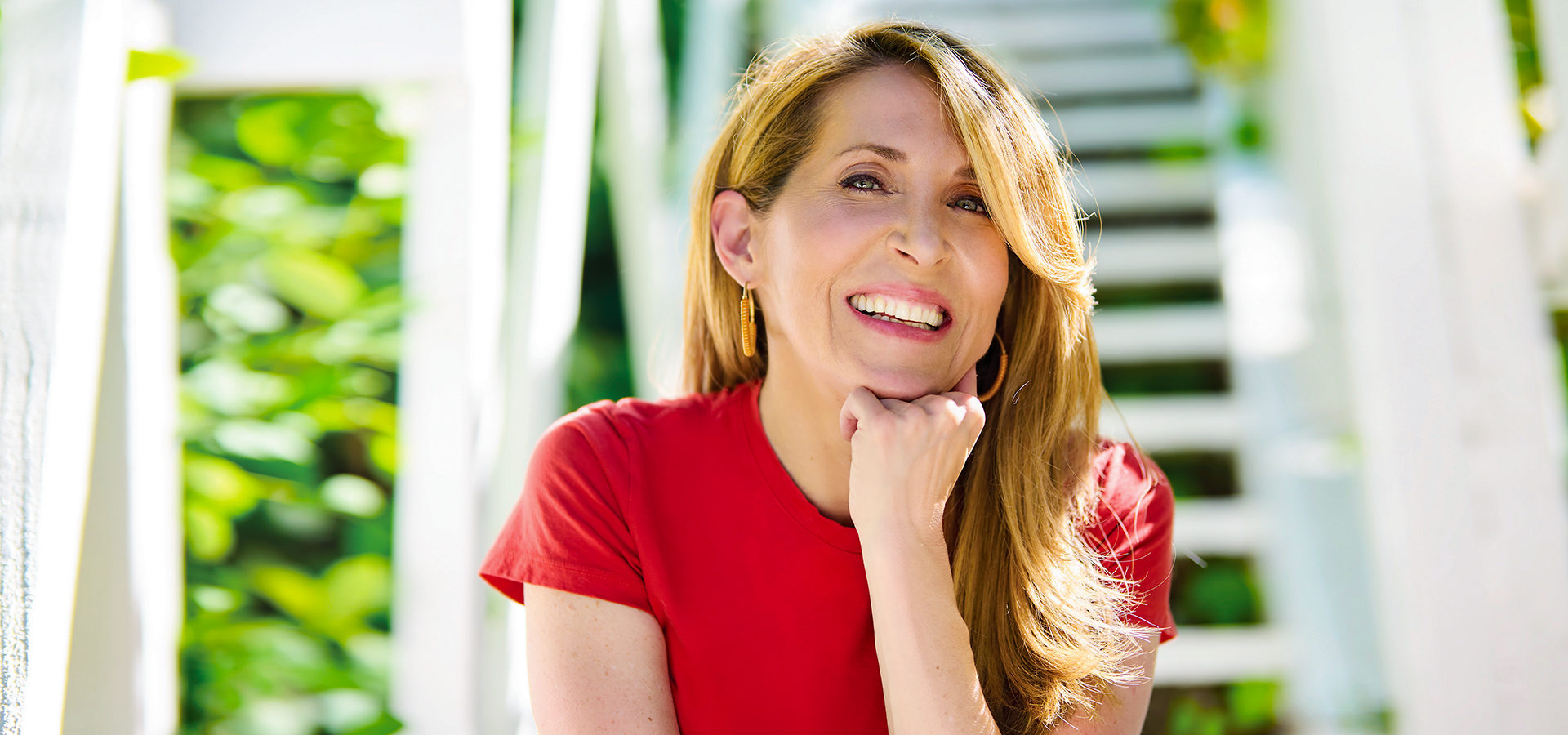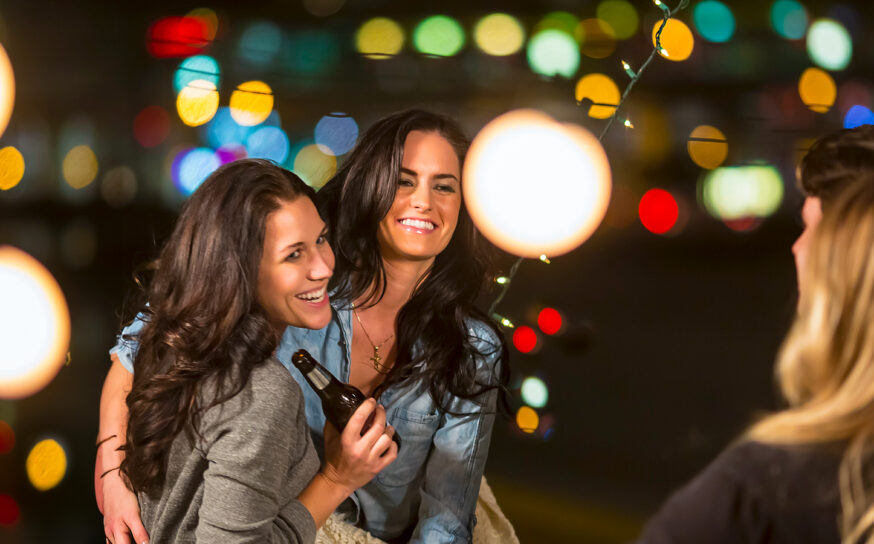Journalist and Los Angeles Native Jessica Yellin Delivers Even Bad News in a Good Way
The news whisperer.
-
CategoryArts + Culture, Music + Podcasts
-
Photographed byMichael Becker
Meet Jessica Yellin, and within minutes it is apparent: She set her sights high from day one. The LA native attended the Westlake School for Girls (now part of Harvard-Westlake) and graduated magna cum laude and Phi Beta Kappa from Harvard. From there she climbed the ranks of news, ultimately working at several national cable outlets. She felt like she’d reached the top when she became chief White House correspondent for CNN. But in 2018, after eight years at the network, Jessica felt frustrated at not being to share news in a meaningful way—with proper context and relevant backstory. She left CNN and launched News Not Noise. Here VB editor Linda Grasso chats with the award-winning journalist about the success of her platform. With a viewership estimated at 800,000, more eyes are on Jessica now than when she was on CNN.
Let’s start with your departure from CNN in 2018. Why did you leave?
I was in TV news for 17 years. I had this idea that I’d get to Washington and that by explaining what was going on in national politics it would help get people more engaged and motivated to vote. I started doing news the way one does it in TV—with focus on conflict, partisan battles, and a lot of negativity. Eventually I became chief White House correspondent at CNN. I was at the top of the game covering the back-and-forth between Congress and the White House and campaign dramas. But I had this awareness that I wasn’t doing what I got into the business to do. I really wanted to help people make sense of this crazy reality. So I made the leap.
What made you think there was an audience for what you wanted to do?
As a political reporter I was out in the field constantly talking to swing or undecided voters, and they were overwhelmingly women. We always hear about the suburban soccer mom or the NASCAR mom. In Washington, the notion was that they just didn’t care about politics. My take was that they care enormously; they just weren’t getting the information they wanted from us. They’d say, “I watch you guys, and you’re not telling me an answer. If I elect this guy, is he going vote for this or for that? Is this woman going to raise or lower my tax rates? What’s my health care going to be like?” I’d ask my bosses if I could I break down how this impacts people’s lives, but there’s always breaking news that pulls you away from that.
How did News Not Noise start?
Prior to starting the Instagram account @jessicayellin, I kept pitching this idea of not-angry news to TV show producers in Hollywood. I got every version of “Oh God no” that you can imagine. I thought to myself, “You just have to do it yourself.” Friends kept saying, “Don’t wait for permission; just pick up your phone and do it.” And one day I did just that. I recorded a video explaining something that was happening in D.C., posted it to Instagram and got a positive reaction—mostly from friends at that point—and I just kept doing it.
What put News Not Noise on the map? You’ve got more than 600,000 followers now on Instagram alone.
I started posting before the Brett Kavanaugh hearings. I had volunteered at a rape treatment center. As I was covering the hearings, I was explaining why that senator is doing what he or she is doing—explaining what was happening behind the scenes. Then I kept pausing and saying, “Hey, I know some of you are probably survivors of sexual violence, and this is probably triggering for you. Here are some resources you can call to talk about it. Doesn’t matter how long ago it happened.” People weren’t really doing that at the time—combining the hard news with a kind of empathy. That really took hold. People felt like they were hearing about politics in a way that was human-centered and empathic.
And then I understand some celebrities noticed you.
Jessica Seinfeld found the account and told her audience, “You gotta follow this.” Amy Schumer is a friend of hers and started following. Then I get a DM from Amy: “Hey, I have something kind of noisy, but if you want it, it’s yours. I’m pregnant. Do you want to announce it on your Instagram?” On her account she posted that she had some news—to find it, go to @Jessicayellin. She did a sister a solid! I jumped from like 10,000 followers to 60,000 followers!
Share a bit about your audience.
They’re mostly women in their 20s and 30s. They don’t want to watch people screaming about world events or to deal with all the negativity and partisanship on cable news. They don’t have time to read four newspapers to get different points of view. They want news told clearly, quickly and without excess drama.
How do you cover Trump these days?
I know people are exhausted by the deluge of awful information. But there’s a certain amount people need to know, whether we are talking about Jan 6 or the return of classified information or the various investigations. That’s not just to be an informed voter but also to understand what in our system needs repair or reform so our institutions and democracy are enduring.
You come from a family of doers. Your father, Ira Yellin, was a prominent real estate developer in Los Angeles.
Yes, he was committed to helping restore historic LA. He redeveloped several iconic downtown properties including the landmark Million Dollar Theatre, the Bradbury Building and Grand Central Market. When he passed away in 2002 (from cancer at age 62), my mom, Adele, took over the business.
Your father was also the son of an Orthodox rabbi and a past president of the American Jewish Committee. Were you raised in a religious household?
We were not kosher and we did not go to synagogue regularly, but I had a very traditional bat mitzvah. We had Shabbat and of course the big holidays. And I was raised with Jewish values, especially tikkun olam—how can you make a difference to help heal the world.
You recently moved from the Westside to Sherman Oaks. How are you liking it?
I love it. People are friendly. I meet neighbors walking my dog, Bruno, on the street. They actually want to say hello, which is amazing. I can go out without makeup and no one gives me the once-over. There are so many great mom-and-pop shops—the woman at Maxwell Dog gave me tips on getting Bruno to sleep. At Centinela Feed they helped me choose snacks for him. I got a P.O. box for business and the man who runs the place gave me his cell phone to text if there are ever issues. It is always sunny and there is plenty of parking. It’s like a small town hidden inside LA.
For more, listen to Jessica’s episode on the SheSez With Linda Grasso podcast: shesez.com/journalist-jessica-yellin-delivers-even-bad-news-in-a-good-way
4 Ways California Girls Can Celebrate Galentine’s Day
We ❤️ these February special events!
Tech Entrepreneur Looks to Revive California’s Broken DMV
Governor Gavin Newsom hopes Steve Gordon’s Silicon Valley experience is just what the ailing agency needs.
Top French Restaurants in Los Angeles for Valentine’s Day
Where to celebrate your love on the most romantic night of the year.
Get the Latest Stories







